Id send her a nice note back. You are NO longer part of my family hope you can deal bye.....your sister is a total loser.
I Refused to Abide by My Sister’s Wedding Rule—And She Utterly Destroyed Me
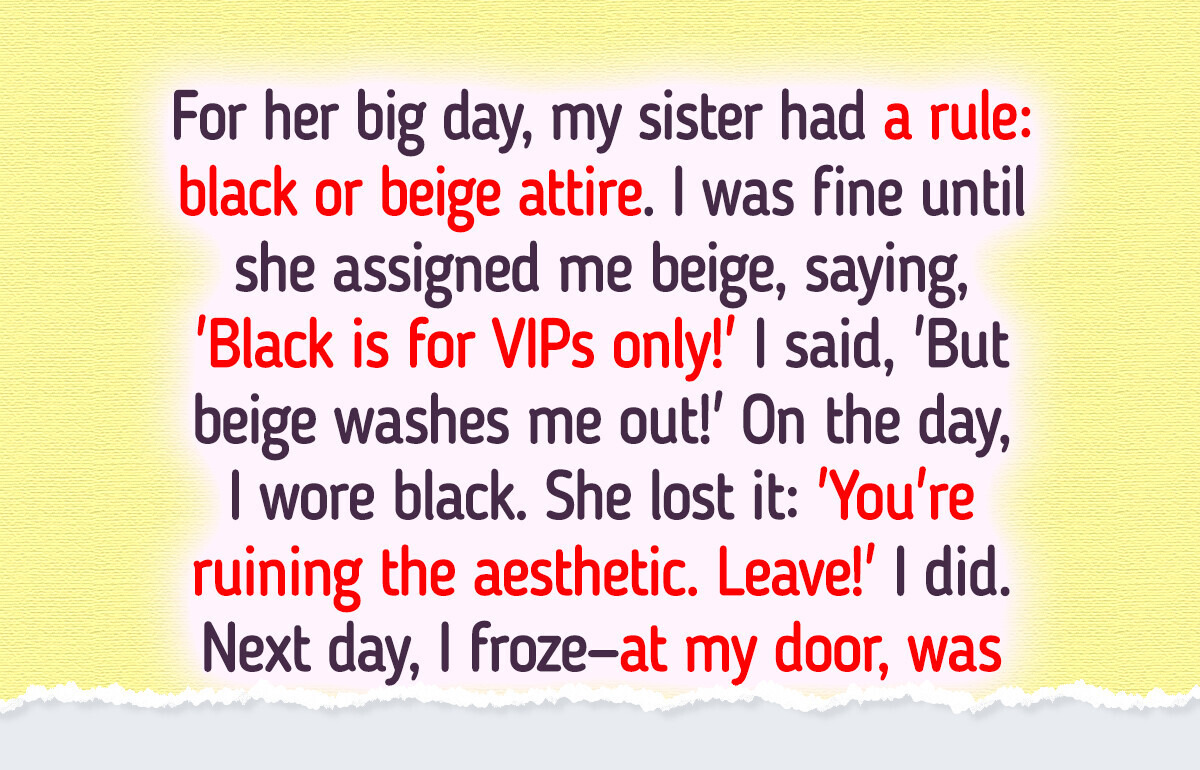
Weddings are often seen as joyful celebrations filled with love, laughter, and unforgettable memories. But sometimes, the pressure to make everything perfect can turn even the smallest details into major conflicts. From carefully planned themes to specific dress codes, every part of the big day can carry a deeper meaning for those involved.
While these expectations are often set with good intentions, they can also lead to tension when misunderstood or taken too far. Recently, we received a letter from a reader who found herself caught in one such situation—and decided to share her experience with us.
Here’s Mary’s Letter:
Hi Bright Side,
For her big day, my sister had a rule: black or beige attire. I was fine until she assigned me beige, saying, ’Black is for VIPs only!’ I said, ’But beige washes me out!’
On the day, I wore black. She lost it: ’You’re ruining the aesthetic. Leave!’ I did, to avoid causing a scene.
Next day, I froze—at my door, was standing a courier holding a sleek envelope, cream-colored with gold-embossed lettering. I signed for it, puzzled, and stepped back inside.
The note inside read: ’Effective immediately, you are no longer considered part of the bridal party. Your choice to disregard the clearly stated dress code caused significant emotional distress on what was meant to be a flawless day. I trust you’ll eventually come to appreciate the importance of respecting boundaries.’
Signed, ’Cordially, The Bride.’
I stood in stunned silence. The wedding was already over. There was no bridal party left to be in. But apparently, this was her way of retroactively making a point—sealing the moment with an official dismissal.
Before I could process it, my phone buzzed.
BRIDE CHAT: ’Hi all! Just wanted to share—there’s been a bit of tension after the wedding, and I’ve asked someone to step back from post-wedding activities for the time being. Appreciate everyone’s support 💕’
She didn’t mention my name. She didn’t have to. Everyone knew. Within the hour, relatives started reaching out.
One message read: ’She’s feeling really hurt. Maybe it’s time to apologize?’ Another asked: ’Was it really that hard to follow the dress code?’
She’d made her calls, framed her version, and now I was the unreasonable one—the one who ruined her day by choosing the wrong color. Not a word about how I had been told to wear it. Not a mention of being dismissed in front of guests. Just silence. And now, exclusion.
This isn’t just about a dress anymore. It’s about image. About control. And now? I don’t know how to move forward. I’d appreciate your advice!
Sincerely,
Mary
Thank you, Mary, for sharing your story with us. What you’ve experienced isn’t just about a color palette—it’s about dignity, boundaries, and being made into a public scapegoat under the guise of wedding aesthetics. Here are 5 pieces of advice, each offering you a distinct path forward.
Choose clarity over chaos.
When your values and someone else’s image-consciousness clash, clarity becomes your compass. Ask yourself, in front of a mirror, if you’d feel peace apologizing for something you don’t regret.
If the answer is no, then don’t offer an apology simply to smooth over someone else’s curated version of events. Instead, write a short, private note explaining your side—not to rekindle the fight, but to give your truth oxygen. Whether she reads it or not, you’ll have spoken for yourself with dignity.
Let her version echo.
Sometimes, doing nothing is louder than any response. Let the bride’s actions—the public group chat, the formal letter, the exclusion—stand on their own. People talk.
And while right now she controls the narrative, the extremes of her behavior will, over time, start to erode its credibility. Your silence can be a form of grace—but only if you’re okay with not being understood right away.
Precision without capitulation.
If preserving family peace matters more than pride, offer a carefully worded apology that acknowledges impact without admitting fault. Say, “I’m sorry my choice upset you on a day that meant so much to you. That was never my intention.”
This allows you to extend an olive branch while maintaining your integrity. It won’t undo the public fallout, but it might soften the frost between you two—and others may follow suit. Sometimes diplomacy is a survival tool.
Redefine the relationship.
This is your moment to reevaluate the dynamic. Her need for control, the public shaming, the courier-delivered dismissal—all point to a pattern, not a one-time offense. Ask: Do you want to repair something, or redefine it entirely?
You don’t have to cut her out, but you do have permission to step back, disengage from toxic loyalty, and protect your emotional space. Just because someone shares your blood doesn’t mean they own your peace.
Turn the scene into a statement.
What if you use this moment as creative fuel? Turn it into a spoken word piece, a story, a personal essay—strip away names and make it art. Take the absurdity of beige versus black, the envelope, the group chat silence—and reframe it as commentary on control and image.
Not only do you regain power, you also invite empathy from others who’ve faced similar silencing. Sometimes, the best revenge is transformation.
Some true events are so shocking, they seem more like fiction than reality. Click the link to explore 10 unsettling stories that are almost too twisted to be true.
Comments
If you're her sister why weren't you a VIP??
Related Reads
I Had an Affair With a Friend’s Husband—and Her Reaction Left Me Fuming

10 Dog Breeds That Are Not Recommended for First-Time Owners

15 Stories That Inspire Us to Stay Kind Even When Life Feels Unfair
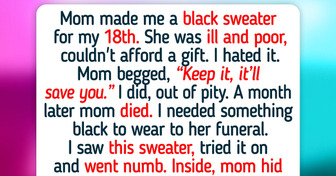
My Coworkers Excluded Me From Their Group Chat on Purpose—The Real Reason Shattered Me

15 Stories That Prove Some Memories Are Impossible to Delete
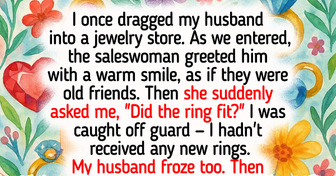
12 Moments Where Empathy Showed the Power of a Kind Heart
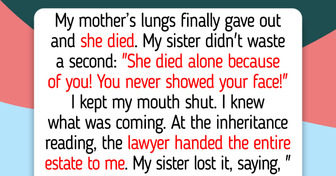
I Won’t Help My Jealous Sister Anymore After She Isolated Me From Her Family

I Refuse to Forgive My Wife for What She Did to My Son

My Neighbor Refused to Help My Autistic Son, She Wasn’t Ready for My Revenge
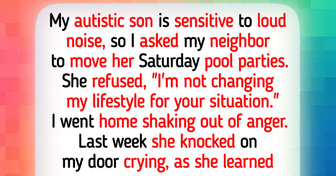
A Stranger Humiliated My Daughter at Disney World—He Picked the Wrong Mom to Mess With

15 Moments That Prove Kindness and Mercy Are Quietly Saving the World
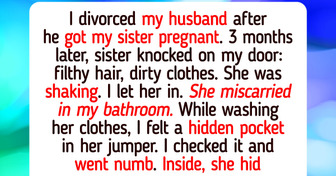
I Refuse to Give Up the Passenger Seat for My MIL—She Should Learn Her Place




